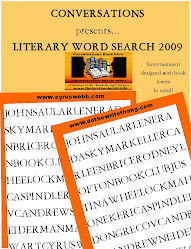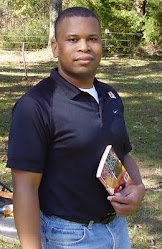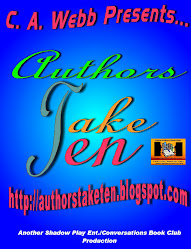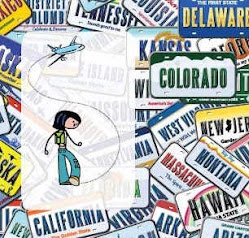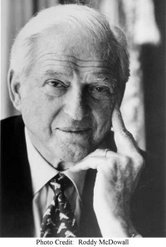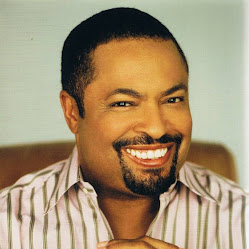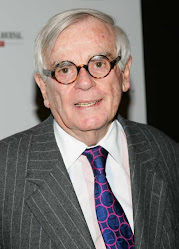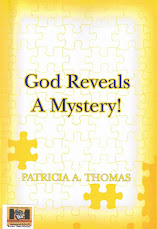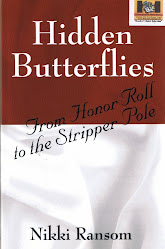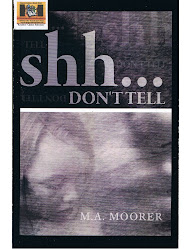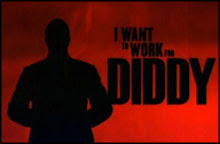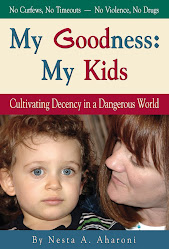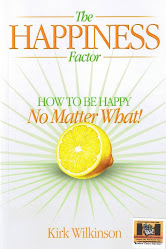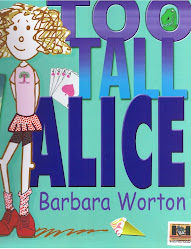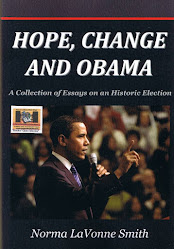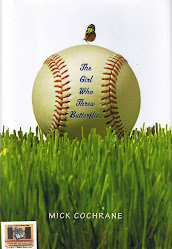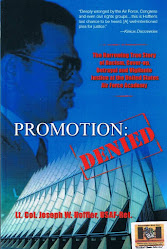 Bakari Kitwana is co-founder of the first National Hip-Hop Political Convention and the author of the 2002 groundbreaking The Hip-Hop Generation: Young Blacks and the Crisis in African American Culture. He holds Masters Degrees in English and Education from the University of Rochester. Why White Kids Love Hip-Hop: Wankstas, Wiggers, Wannabes and the New Reality of Race in America is his most recent book.
Bakari Kitwana is co-founder of the first National Hip-Hop Political Convention and the author of the 2002 groundbreaking The Hip-Hop Generation: Young Blacks and the Crisis in African American Culture. He holds Masters Degrees in English and Education from the University of Rochester. Why White Kids Love Hip-Hop: Wankstas, Wiggers, Wannabes and the New Reality of Race in America is his most recent book.
Our Conversation with Kitwana began in 2006 and will come full circle in 2007 as we discuss the difference in Hiphop and Rap and who is to blame for the "bad rap" of Hiphop.LET’S BEGIN WHEN YOU DISCOVERED THE POWER OF HIPHOP? When I first started it was writing about gangsta rap. I wanted to address those who said hip hop was too violent. I realized hiphop was a voice based on social and political climate. Some artists like Will Smith can be good music and have no real message that contains any relevance. I wanted to address what has happened to blacks as a people, and no other arena has done that like the hiphop culture. As I analyzed hiphop, I realized that society still is not offering an alternative for drugs or getting a job. The best the country has done is a career in the military. Take artists such as Eminem and Nas. They are both high school dropouts, yet realized that they could get the same jobs with a seventh grade education as someone who graduated from high school. They have a message that has a valid point to those experiencing the same conditions today.
TELL ME ABOUT YOUR YOUTH. WHAT WAS INSPIRING TO YOU?I was born in 1966 in Long Island. My family was Pentecostal so I grew up with church being a big part of my life. My earliest recognition of music was hiphop. The music was very deejay-driven. Emcees weren’t flourishing during my early childhood memories, but the music was transitioning from disco to hiphop.
WERE YOU ALWAYS SOMEONE WHO HAD A LOT TO SAY?For me it is a continuous process, especially over the last three to four years. I have had time to think through the issues I raise more. Since my first book was published in 1994, I have been trying to bring a more political force to hiphop. More peers were as political or well-read as I was on the issues that I was bringing up. By the time that Public Enemy came out, they weren’t political enough for me. They were more about black power. Groups like KRS1 were more about directing people to read and think about issues.
I have been involved in politics in college. I was reading books on issues that were outside the classroom. I discovered that writing and books that could have an impact on people. I try to convey to those I speak to and who read my books how they can look at themselves as a generation of purpose. I want them to leave me thinking how they can bring a real level of politics to their generation.
TELL ME ABOUT YOUR PERSONAL EXPERIENCES WITH THE HIPHOP COMMUNITY?For me it was a seamless transition from disco to hiphop. By the time I heard “Rapper’s Delight,” I knew people who were already rapping. The music was not condoned by my parents when I was younger, because it was seen as the world’s music.
SUPPORT IS SOMETHING THAT IS MISSING WHEN IT COMES TO THE ARTS. WHAT WAS THE HIPHOP CULTURE LIKE FOR YOU?We lived hiphop when I was growing up. It wasn’t something that we did consciously. It’s just like when you saw that you go to work, you don’t think about whether you got there by walking, driving or catching a ride. Church taught me hot to listen to music, knowing what was good music and what wasn’t. My brothers didn’t get it, but that didn’t pose as a issue for me personally. It wasn’t a music that dealt with cursing and adult themes the way it does today. There wasn’t a need for the level of policing that goes on now. You didn’t hear the “N” word or the “B” word thrown around in music of that time. Today there is a real blurring of the prison culture with the true street culture and they have been imposed on what is considered hiphop.
YOUR BOOK “WHY WHITE KIDS LOVE HIP HOP” IS SAID TO ARGUE THAT HIPHOP HAS BROKEN DOWN MORE RACIAL BARRIERS THAN ANY OTHER SOCIAL DEVELOPMENT OF THE PAST THREE DECADES. WHAT DOES THT MEAN TO YOU?I have seen that the success of the civil rights movements has given way to the success of the hiphop movement. You don’t have to be a part of just one aspect in order to be accepted. You can be a deejay, rapper, dancer or whatever you represent. The book has made inroads, forcing young people to have access to black pop culture. Young white kids have more access to this culture. It will be up to them what they do with it.
HIPHOP SEEMED TO HAVE REPLACED ROCK MUSIC WHEN IT CAME TO CONTROVERSY. WHY DO YOU THINK IT HAS GARNERED SO MUCH CRITICISM? It’s an easy target. For people who aren’t black there is no repercussion for attacking young black people. Add that with the corporate packaging of hiphop that shows black women as being oversexed and black men as criminals and you have a potent combination. Hiphop goes beyond even the traditional black culture, so even it is understandable that older blacks can be offended.
WHO’S TO BLAME FOR THAT IMAGE?There’s a lot of blame to go around. The artist who creates the music for instance. For them a contract can be their lottery ticket, their opportunity to make some real money in America. Then you have the corporate industry. They don’t give a real range of music out there, so the market is skewed towards certain topics. And then society has to share some of the blame. We don’t hold them accountable and just take whatever they put out. The bottom line is that you shouldn’t have 30-40 year olds making music for 10-12 year olds that feature adult themes and not expect them to be adversely affected.
WHEN TESTIFYING IN THE CASE OF ANTHONY LATOUR, A MEMBER OF AN UP AND COMING RAP GROUP JUST BECAUSE ON BEHALF OF THE ACLU, YOU EXPLAINED THT BATTLE RAP CAN “GET PRETTY NASTY IN TERMS OF THE LANGUAGE” BUT WAS STILL SIMPLY “A VERBAL CHALLENGE.” HOW DID YOU FEEL ABOUT BEING INVOLVED IN SUCH A CASE?I admit that the ACLU has been wrong on some issues but they have also been right on the frontline of issues dealing with people of color. The case made me consider what was being done. If a white student can be expelled (like Anthony Latour) from a predominantly white school, then just think what would happen to a black student that might be found in a similar situation. The kid was using the power of language, and that was his right.
PACIFIC NEWS SERVICE PUBLISHED A COMMENTARY YOU WROTE ENTITLED “WHY THE HIPHOP GENERATION SHOULDN’T VOTE FOR KERRY” ON AUGUST 24, 2004. CAN YOU EXPLAIN WHAT YOU WERE TRYING TO GET ACROSS TO READERS?I wanted to encourage them to be involved in the electoral process. A lot of people have political ideas and no political expression. You can’t support a party based on race. It is not enough to vote for one candidate just because you say you hate the other. It is important that you know what they stand for before casting that vote.
WHAT ABOUT YOUR ROLE AS AN ADVOCATE, DOES IT COINCIDE WITH YOUR LIFE AS AN AUTHOR, OR DOES ONE LEAD THE OTHER?I think they go hand in hand. I am a political writer. Sometimes I write on things that just interest me. My books are political, and I approach them with an activist’s mind. My style is inspirational, trying to share information with the public and I want to inspire a new generation of activist.
TALK TO ME ABOUT RAP SESSIONS. I WANT TO KNOW HOW IT STARTED, WHAT THE INITIAL GOAL WAS AND WHAT YOU HOPE TO ACCOMPLISH?I wanted to have a cross-racial discussion about hiphop. I felt that I needed to do more with the political organizing on a multi-racial front. There was more that I wanted to do with the way the book was being received. With Rap Sessions race and hiphop became something that people could handle. When CSPAN covered one of the sessions, people began contacting me and wanting us to bring it to where they were. I feel as though it is not just crossing racial lines but generational lines as well. Young people are looking for answers, and it is our responsibility to try and answer their questions. This year we tackled race and hiphop. Next year we are discussing gender and hiphop.
YOU HAVE BEEN FEATURED EVERYWHERE FROM NATIONAL TELEVISION SHOWS, THE NEW YORK TIMES TO EVEN WWW.PARENTHOOD.COM. HOW HAS THAT AFFECTED YOU?There is a certain level of accountability that comes with the notoriety. I believe that your background does give you some pause as to what you say. I realize it’s not about me. I need to say something to help other people. I try to meditate before every event, getting comfortable with my natural ability. I think of my role more as an intellectual than as a writer. I use the platform I have been given as a way to bring attention to those who may not get it. One thing I have noticed is that you have different races that enjoy the art of hiphop, but when it comes to the politics of the culture, it’s mostly blacks that are involved. I want others to see that there is more than the enjoyment of the music that makes you a supporter of the culture.
IS THERE A DIFFERENCE BETWEEN HIPHOP AND RAP?I think there is the impression that one is more commercial than the other. It is said that hiphop is a culture and rap is just something you do. You live hiphop.
WHAT DO YOU FEEL HAS BEEN YOUR CROWNING ACHIEVEMENT FOR YOU?It has been having Hip Hop Generation have the impact it has and continues to have. The book is taught on over 100 college campuses as a text book. I am just glad to be part of a movement that gets you to thinking of hiphop as something more than just music.
WHAT ADVICE DO YOU HAVE FOR YOUNG PEOPLE WHO HAVE IDENTIFIED THEIR PARTICULAR VOICE AND WANT TO KNOW WHAT THEY SHOULD DO NEXT?It’s a process that you grow into. Trust your instincts. Don’t let people discourage you.
WHAT’S NEXT FOR YOU?My next book is “Set Your Soul Right”, to be released in 2007.


